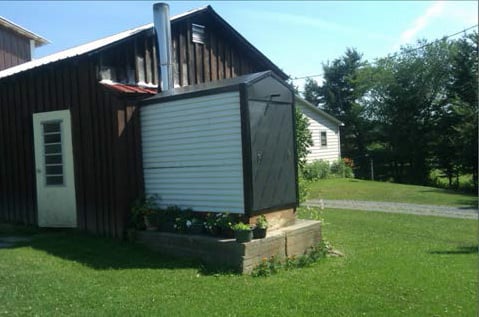
Photo courtesy of University of Maryland
An outdoor wood boiler is a home heating unit that is revolutionizing how those with wood stoves heat their homes. While traditional indoor wood stoves produce indoor air pollution (smoke), unpleasant odors, fire risk, and potential safety risks, an outdoor wood stove provides efficient, independent heat without any of the detrimental side effects. If you’re looking for a wood burning alternative when it comes to heating your home, an outdoor wood boiler could be the perfect solution you’ve been searching for.
What is an Outdoor Wood Boiler?
Because this is a relatively new technology, few homeowners are privy to the benefits or operation of these wood burning stoves. In truth, the function of these units is fairly straightforward. Where an indoor wood burning stove provides heat directly to a room or residence, an outdoor wood boiler produces heat outside of your home, heats up a water reservoir, and then transfers that heated water through underground pipes into your residence. Once the heated water reaches your home, these units utilize a heat exchanger to transfer the heat they produce to your existing furnace, which then circulates it throughout the house in the same manner as traditional central heating. If you already have a furnace and ductwork installed, you’re a prime candidate to take advantage of the conveniences of an outdoor wood boiler.
Shop Carefully
While outdoor wood stoves are certainly the next generation of wood fired heat, they don’t come without potential problems. Many are constructed out of second rate materials and are poorly designed, so it’s important that you shop around to get the best possible unit. Rust and deterioration can be a major problem with outdoor wood stoves, so the more you pay up front for a boiler made of quality materials, the longer it’s going to last. Secondly, only purchase units with internal chimneys. Outdoor chimneys lead to higher creosote deposits, potential stove damage fires, and increased maintenance. Finally, take into consideration where you live. One of the biggest complaints about outdoor boilers is their smoke output. If you live in a rural area, this isn’t going to be an issue. But if you live near neighbors the year round smoke that these units create can lead to complaints. Higher chimneys and more efficient burning stoves can help in this regard, though in general these units are better suited for rural residences than suburban or urban ones.
Hire a Professional
This suggestion may irk many wood heat enthusiasts, but it’s a smart call to hire a contractor for installation. Installing the complex workings of an outdoor wood-fired boiler, which includes the stove itself, the boiler pipes that lead to the house, the heat exchanger, and integrating everything into your pre-existing heating system, is a job better left to an expert. If an outdoor wood stove sounds like the right choice for you, contact an experienced contractor to ensure that you can enjoy your new wood fired heating system for years to come.
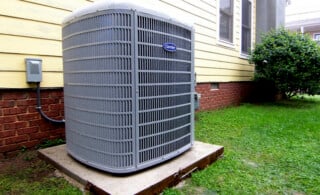 Air Conditioner Condenser Coil Costs, Repairs & Replacements
Air Conditioner Condenser Coil Costs, Repairs & Replacements 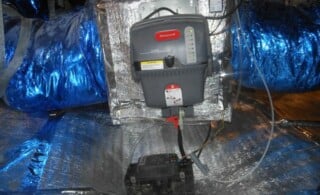 Whole House Humidifiers
Whole House Humidifiers 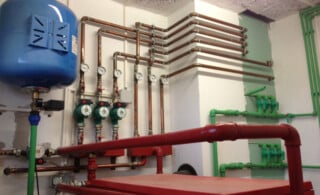 Choosing Green: Boilers and Radiator Heating Systems
Choosing Green: Boilers and Radiator Heating Systems 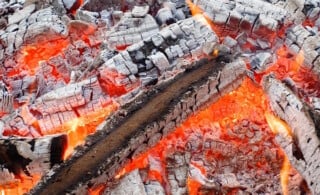 Consider Wood-Burning Furnaces
Consider Wood-Burning Furnaces 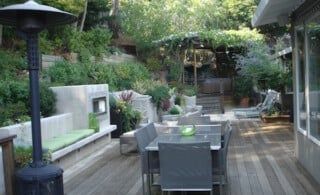 Outdoor Heaters: a Refuge from the Cold
Outdoor Heaters: a Refuge from the Cold 

Why would the unit blow cold air instead of hot air into the house
I have a Central Boiler (Model CL17) that has been heating my home since 1993. I normally have to add 20 to 25 gallons of water each year. No leaks are apparent. My question is: what is normal water loss due to evaporation?